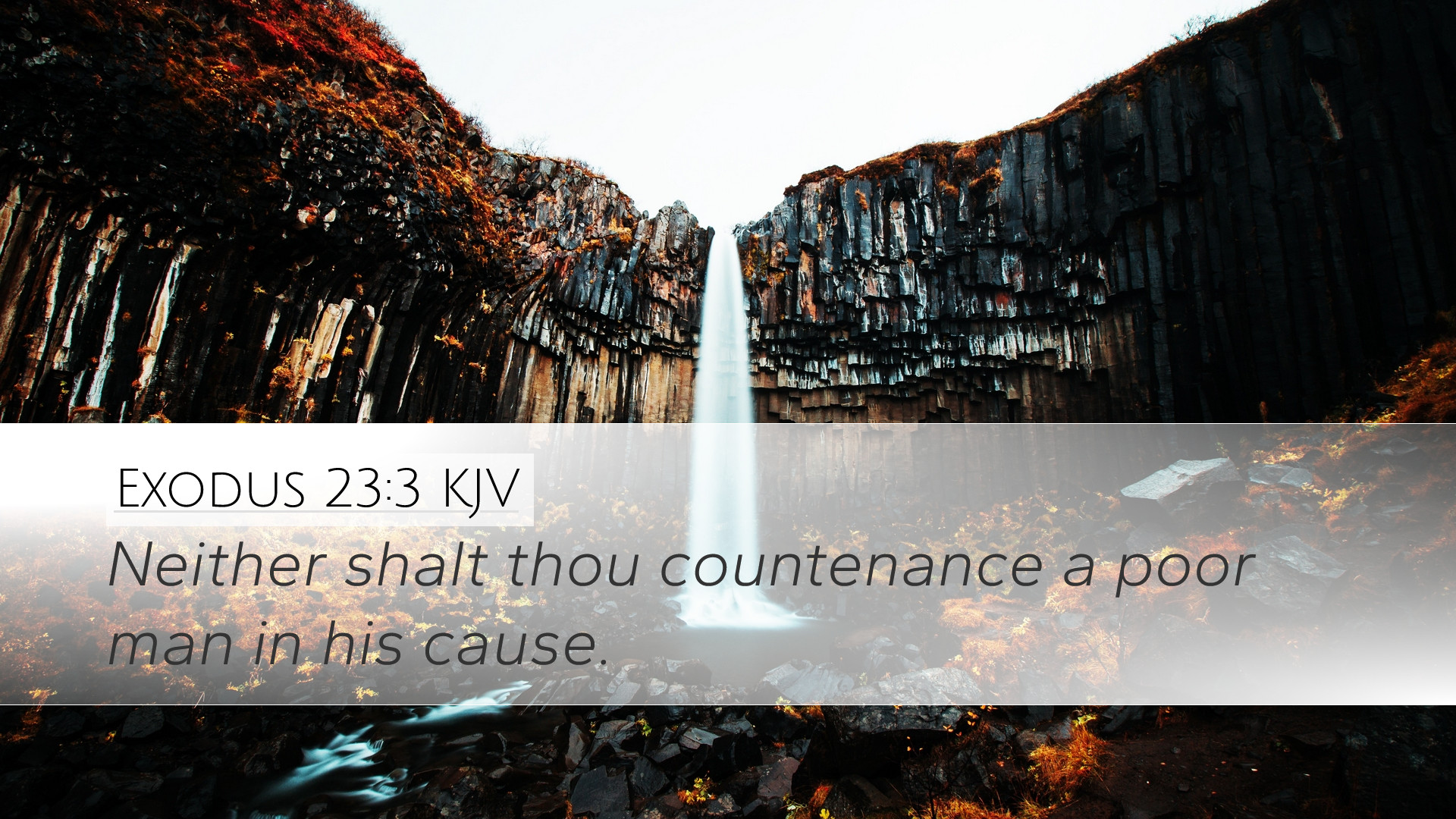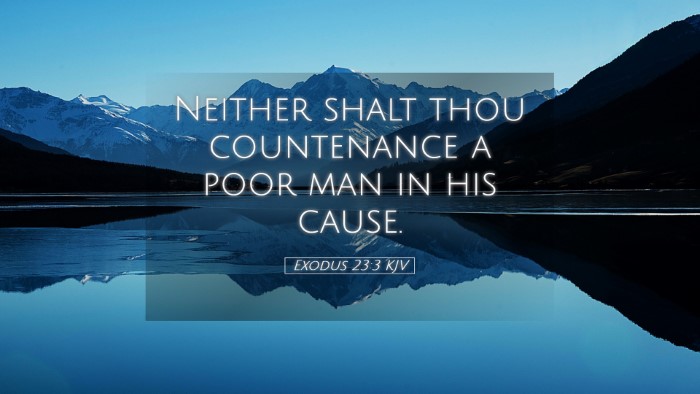Exodus 23:3 - Bible Commentary
Verse: "Neither shalt thou favor a poor man in his cause."
Introduction
Exodus 23:3 is a critical verse within the broader context of God's Law as delivered to the Israelites. It encapsulates the divine instruction regarding justice, fairness, and the impartial application of the law. In this commentary, we draw insights from notable public domain sources, providing a comprehensive understanding for pastors, students, theologians, and scholars.
Contextual Background
The Book of Exodus narrates the journey of the Israelites from slavery in Egypt to the edge of the Promised Land. In Chapter 23, God outlines various social justice laws, culminating in instructions that promote equitable treatment for all individuals, regardless of their social status. This commandment challenges human tendencies to show favoritism based on either wealth or poverty.
Analysis of the Text
1. The Dangers of Favoritism
Matthew Henry emphasizes that favoritism, even towards the poor, can distort justice. It is essential to understand that a judge's role is to evaluate the facts of a case impartially. The innate human condition often inclines one to sympathize with the impoverished; however, this should not influence judicial decisions. The moral of this exhortation is to uphold the integrity of justice without bias, ensuring fairness remains paramount.
2. God’s Call for Just Leadership
Albert Barnes elaborates on the need for leaders and judges to act justly. This command serves as divine instruction to ensure that justice is pursued and maintained with impartiality. Leaders should not allow personal biases or societal pressures to dictate their decisions. The overarching principle here is that every individual, regardless of status, deserves equal treatment under the law.
3. The Principle of Equality Before the Law
Adam Clarke's commentary points out that justice must encompass all people equally. Showing favoritism, even towards the marginalized, can create an imbalance where truth is sacrificed for emotional response. Every case should be judged based on its merits rather than the societal standing of the involved individuals. This echoes the broader theology of God’s character, which values truth and righteousness over human sentiments.
Theological Implications
This verse reflects God's larger moral framework, emphasizing that justice should be universally accessible and not swayed by external factors. It embodies God’s desire for His people to mirror His nature, reflecting fairness and equity. Pastoral leaders must heed this call, preaching that favoritism undermines the very essence of God’s kingdom.
Furthermore, this command can extend into various societal implications. Ministries advocating for social justice must remain vigilant against biases in their functioning. Applying this teaching can aid in creating communities where the dignity of every person, regardless of social standing, is recognized and upheld.
Practical Applications
- Justice in Leadership: Leaders and judges should commit to examining cases with objectivity, resisting the temptation to be swayed by emotions or pressures.
- Community Engagement: Churches can promote initiatives that ensure equitable treatment in community outreach programs, fostering environments of fairness.
- Education on Impartiality: Theological education programs should address the importance of impartiality in justice, integrating this value in curricula.
- Personal Reflection: Individuals must evaluate their biases, seeking to address any inclination to favor particular groups during interactions.
Conclusion
Exodus 23:3 serves as a striking reminder that God's call for justice transcends societal norms and expectations. In our roles as pastors, students, theologians, and scholars, we are called to advocate for fairness in all aspects of life. Through the insights of Matthew Henry, Albert Barnes, and Adam Clarke, believers are equipped to uphold God's standards, ensuring that our judgments reflect His character—just, fair, and impartial.


